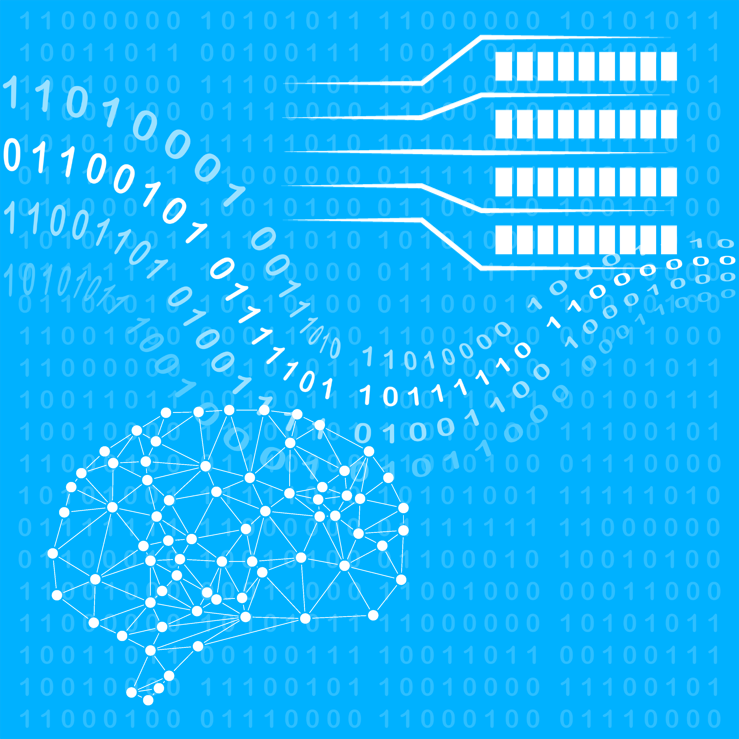Is your company poised to succeed in the digital age? It’s a question often asked by analysts and business leaders alike. Many analysts assert companies organized around principles developed during the industrial age will have difficulty surviving in the digital age. They recommend these companies undergo a digital transformation that better situates them for success now and in the future. A significant part of this transformation involves the embrace of artificial intelligence (AI). A couple of years ago, MIT Sloan Management Review, in collaboration with the Boston Consulting Group (BCG), published the results of a global survey of more than 3,000 executives focused on how organizations are implementing AI solutions. The survey found, “The gap between ambition and execution is large at most companies. Three-quarters of executives believe AI will enable their companies to move into new businesses. Almost 85% believe AI will allow their companies to obtain or sustain a competitive advantage. But only about one in five companies has incorporated AI in some offerings or processes. Only one in 20 companies has extensively incorporated AI in offerings or processes. Less than 39% of all companies have an AI strategy in place. The largest companies — those with at least 100,000 employees — are the most likely to have an AI strategy, but only half have one.”[1] This gap between aspiration and reality compelled Karl Zimmerman (@SteadfastKarl), founder and CEO of Steadfast, to ask: “Is your business ready for the AI revolution?”[2] Based on the MIT/BCG survey the answer to that question is probably no.
The importance of AI in digital transformation
MIT professors Erik Brynjolfsson (@erikbryn) and Andrew McAfee (@amcafee), write, “For more than 250 years the fundamental drivers of economic growth have been technological innovations. The most important of these are what economists call general-purpose technologies — a category that includes the steam engine, electricity, and the internal combustion engine. Each one catalyzed waves of complementary innovations and opportunities.”[3] They believe AI, specifically machine learning, is the next general-purpose technology that will provide new opportunities for organizations and spur numerous innovations. Jonathan Kaftzan (@JKaftzan), Vice President of Marketing at Deep Instinct Inc., adds, “AI can be about simulating human intelligence, incorporating traits such as reasoning, perception, problem solving and forward planning. At its crux, though, AI is about the development and enactment of methods of transforming vast amounts of complex, often unstructured data into intelligent insights. The key elements of artificial intelligence — machine learning, cognitive computing, natural language processing, and sentiment analysis, combined with more effective real-time data management — make this possible.”[4]
“It seems as though artificial intelligence has been on the brink of going mainstream for decades,” Zimmerman writes, “accompanied by the waxing and waning hype cycles often associated with almost-there technologies. But this time it’s different. This time the hype is supported by real-world applications. Today, enterprise organizations are applying artificial intelligence to real-world applications that are capable of generating significant value.” Supporting Zimmerman’s observation, Vivek Mohta (@vmohta1), Chief Business Officer of Manifold, writes, “AI grows in scope by the year, and there are countless possibilities that business can take advantage of.”[5] He goes on to suggest three ways AI can help businesses expand their capabilities. They are:
1. Enabling better perception. “[AI] gives businesses the unique ability to perceive what’s happening. This has many useful applications, from reading radiological scans to automatically inspecting equipment in factories to automatically detecting buildings in satellite imagery.”
2. Improving pattern recognition. “Computers have historically been a tool for determining meaningful patterns from large data sets. As businesses continue to expand customer data assets, it’s crucial for them to be able to recognize more complex customer patterns using more advanced techniques to remain as customer-centric as possible. … Businesses can use this type of AI [to recognize] customers who are likely to churn. By looking at user data to assess whether they are going to stop using a product or service, companies can intervene with special offers or other attempts to retain business. … [Today] data sets are so big that no human can possibly look at all of the available information and make sense of it, but the computer algorithms can.”
3. Making predictions about the future. “Unlike perception or recognition, when an objective truth can be verified by humans during the algorithmic training process, future predictions deal with intrinsic unknowns. … Predicting the future has long been a holy grail of data science and artificial intelligence because the potential rewards are so huge, but many challenges remain.”
Digital transformation requires dramatic change. Routine change is difficult enough to manage, transformation compounds that difficulty. Rob Clyde, board chair at ISACA, observes, “Change is difficult for organizations, which traditionally are structured with stability, rather than innovation, in mind. However, as technology plays an increasingly prominent role in our daily lives, customers increasingly are expecting dynamic, swift-to-market, technology-driven solutions.”[6] AI, he notes, will play a large role in future transformations. “AI and machine learning,” he writes, “are being explored to set medical breakthroughs in motion, improve farmers’ crop yields and help law enforcement identify missing people, among a wide range of promising applications on the horizon. As new uses continue to be developed and refined, there will be increased need for enterprises to safely and securely deploy AI. On this front, there is much work to be done.”
Implementing AI solutions
MIT/BCG analysts ask, “Is AI just an element of a company’s overall digital transformation — or does AI require new approaches?” They conclude enterprises need to think much more expansively than they have in the past if they want to take full advantage of the opportunities presented by AI. They explain, “AI requires even more radical thinking, as it affects knowledge- and judgment-based professions, and the new entrants in markets could be machines. Thus, companies need to think even more expansively about their businesses, build cohesive future scenarios, and test the resilience of their directional plans against such scenarios. This kind of scenario-based planning can also sharpen the ability to recognize events that could trigger large effects on their business.” As Clyde noted, change is difficult and there are plenty of challenges facing organizations when it comes to implementing AI solutions. Kaftzan explains, “New training and skills will be needed for workforces in order to adapt their jobs to the new opportunities AI presents, requiring new educators. AI technology will need maintaining and new systems will need to be developed, necessitating individuals with knowledge and experience in this new field. In addition, the automation of traditionally repetitive, administrative office jobs would arguably allow for more creativity and boost workforce morale, an advantage for any industry.” Most analysts agree that, despite the difficulty, digital transformation built upon a foundation of cognitive technologies is both necessary and beneficial.
Concluding thoughts
Zimmerman concludes, “AI-based technologies are improving quickly and companies are moving fast to exploit the commercial opportunities. But for AI to be effective, enterprise organizations have to be ready with the data, the expertise, and the infrastructure to make the most of new technologies. In the coming decade, the competitive landscape across a swath of industries is likely to be shaped by artificial intelligence adoption.” MIT/BCG analysts add, “Big global uncertainties should not deter corporations from acting today, when action is required.” And most analysts insist, action is required.
Footnotes
[1] Sam Ransbotham, David Kiron, Philipp Gerbert, and Martin Reeves, “Reshaping Business With Artificial Intelligence,” MIT Sloan Management Review, 2017.
[2] Karl Zimmerman, “Is Your Business Ready For The AI Revolution?” Datafloq, 10 July 2017.
[3] Erik Brynjolfsson and Andrew McAfee, “The Business of Artificial Intelligence,” Harvard Business Review, 26 July 2017.
[4] Jonathan Kaftzan, “Artificial intelligence is transforming the enterprise,” Information Age, 7 August 2017.
[5] Vivek Mohta, “3 Ways Artificial Intelligence Could Boost the Success of Your Business,” readwrite, 4 January 2019.
[6] Rob Clyde, “AI Factors Heavily into Future of Digital Transformation,” ISACA Now Blog, 21 September 2018.





